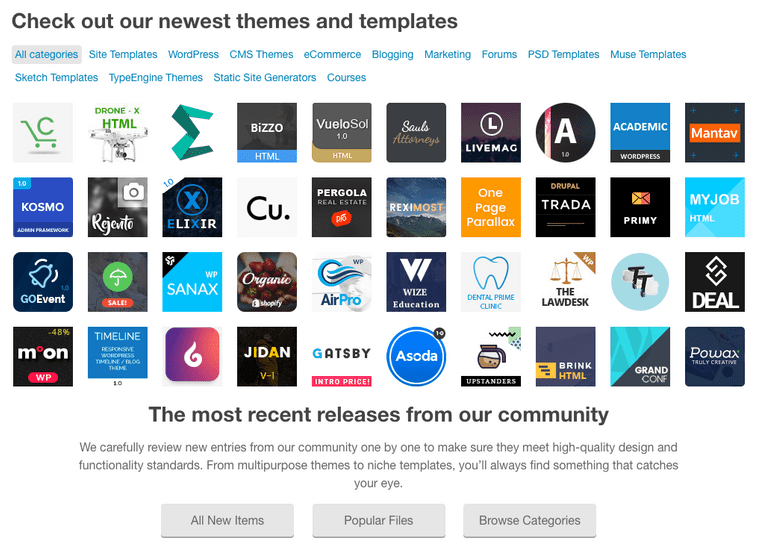How to Start Freelancing From Home When You Have No Clients
How can I start freelancing from home when I have no clients? A question that ran through my mind when struggling to find a permanent developer’s job back in 2009. In my case, it was the major doubt that prevented me taking action sooner when offering my services as a remote freelancer.
I get it, it’s a big risk – especially coming from a decent steady income (even more so when you’re flat broke as I was!). The natural inclination is to stay in your comfort zone or even ditch the idea of working from home altogether. I know I considered it.
I started freelancing remotely eight years ago, successfully running my own web development business ever since. In this article I’ll detail the major factors that saw me go from zero clients to working with a number of global brands and consistent repeat customers. Alongside this there’s a great idea at the end that I’d like to share. Considering this when I started out would have been huge for me.
Although written from a remote freelance web developer’s perspective, I’m positive this article can help anyone looking to start working from home with no clients.
Make Yourself Available
Waiting for enquiries to drop in to your mailbox won’t work. You need to make yourself available. It might be scary putting yourself out there, especially as someone new to self-employment. But this is my number 1 tip; let the world know you’re a contractor taking on new projects.
The simple things you can do to achieve this are:
Get a Good Website
As a freelancer, your website is your top marketing tool. People are searching for people like you. Every day.
A presence is essential and it’s not too difficult or expensive to set up. Using WordPress, a premium WordPress theme from ThemeForest and the Lite Package from TSO Host – your remote business could be online for under £50.
Once up and running, focus on content. Concentrate on making clear:
- The service(s) you offer
- How much you charge for this
- When you’re next available to carry out work
- How people can contact you
My website was the first thing I set up. It has consistently brought in most new project leads.
One thing I’d suggest to 2009 Tom is to start blogging sooner. Establishing yourself as a source of knowledge/expertise in your field can be lucrative.
Update Social Media
This speaks for itself. You’re moving from a typical job to working for yourself. The easiest and quickest way to let people know is via social media.
Update the following:
- Facebook intro
- Facebook employment details (get a page for your new business)
- Twitter bio and website
- Instagram bio and website
- LinkedIn job details
- Consider “looking for work” posts
These are quick and easy wins. Free ways to get the word out about your new venture.
Taking care of this early opens you up to further social media possibilities in the future. Facebook ads being the best for fledgling businesses in my experience.
I’ve not needed to explore this with my freelancing business (I have with my retail one), however the specificity of targeting is unparalleled. That said, I’d only recommend paid for your freelance business once the basics are in place.
Personally, I use Twitter as the voice of my freelancing business. Keeping it relevant is important such as what you’re working on, when you’re next available and industry news. Though people buy from people. Don’t be afraid to be yourself (within certain limits!).
Use Existing Relationships and Make New Ones
If you have a skill that is transferable to a remote business, no doubt you have contacts. People who could be clients that you already know of:
- Your boss (could you phase into freelancing?)
- Existing colleagues
- Businesses people in the same field of your existing job
- Friends (and contacts of)
- Family (and contacts of)
- Tutors from college or university
- Fellow students
My advice would be to sound out these people. Could they use your services? Do they already use someone else for the service you’re wanting to provide? You could have potential clients staring you in the face already.
This angle got me my first three leads, one of which ended in a multi-year working relationship. To expand:
My friend was in a band, they needed a website – I’m your guy. The band had a photographer that needed web support – there’s another client. My Dad has his own business too, he had a contact who’d just let his web developer go – what a great lead that turned out to be!
Make new connections and nurture them. While typical business networking events have never worked for me, willingness to make new connections is vital. Working from home doesn’t mean you can’t be personable:
- Be friendly in your email conversations, make small talk
- Interact with people on social media
- Be willing to talk over the phone/Skype (big one)
Contacts will grow naturally as your business grows. Do a good job, exceed expectations and you will get re-hired. You may also get recommended to one of your clients colleagues or friends.
Find Your Niche, Specialise and Stick to it
So you’re a content writer. What do you write about? Anything? Imagine trying to market yourself to the whole spectrum of people looking to hire a freelance copywriter. It’s hard, it’s competitive. Consider specialising.
For instance if you write awesome book reviews, target people in this area. Not only will you be doing what you’re best at, your lead conversion rates should be much higher.
I’d fancy my chances more moving from targeting a broad range of potential clients who have many freelancers to pick from, to a smaller specific group who find only a handful of specialists.
The best thing I did to get new clients for my remote business was to specialise.
Starting out I listed the following service pages on my website:
- Web design
- Web development
- Front end development
- JavaScript development
- PHP development
- Web Consultancy
- The list was endless…
It’s natural to think that a catch-all approach will work. However, condensing this content and naming myself a “Freelance WordPress Developer” was what made things tick. I still use all the listed skills, but the aforementioned is what my potential clients are looking for.
Optimising my website through copy lead to much more free search traffic from Google than the broader terms ever brought in. What’s more, the leads are of higher quality due to the specificity of my content. IE, more likely to turn into paid projects.
I truly believe specialising is an amazing angle for people looking to start a freelancing.
You Don’t Necessarily Need “Clients”
This is the one I mentioned in the article introduction. I wish I’d have based my freelance business on this model when starting up. What if you don’t need typical clients?
My reservations about going it alone were focused on having no work lined up there and then. Projects from people who would employee me to do a specific job, then pay me for the work. Instead of chasing these projects, could there be another way?
Producing something that can sell to many people rather than just one specific client is an angle. I’ll explain:
There’s a large market for digital products. As a developer, sometimes I think it makes sense for me to quit client work. Building a general theme once that can be sold over and over again has huge return on time investment potential.
Granted, there may not be these opportunities in your specific field. Nonetheless another way of looking at the client/work relationship.
Conclusion
Looking to start freelancing from home when you have no clients can be daunting. But there is a way. Essential takeaways from this article are:
- Put yourself out there with confidence
- Don’t discount the easy/obvious stuff
- Make use of existing relationships
- Nurture new relationships by being personable
- Specialise as soon as you can
- Think outside the box for earning angles
I hope you find my experiences useful and they provide some level of confidence to you. Just remember every freelancer has to start somewhere! If you enjoyed this article please share it with your friends. Good luck!




